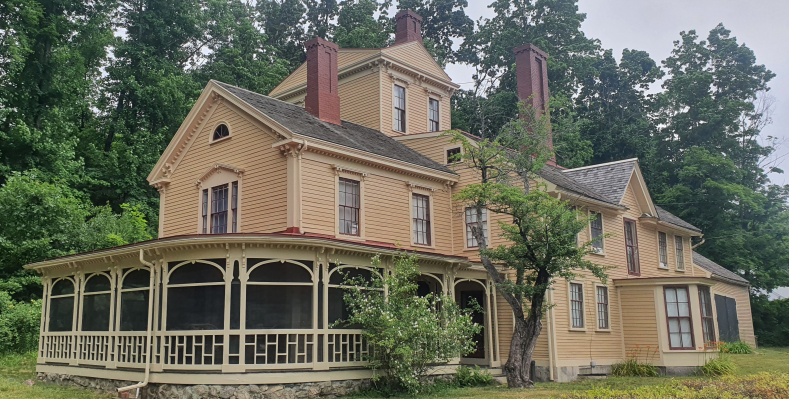We marched down towards Lexington about a mile or mile and a half and we saw them coming. We halted and staid until they got within about 100 rods, then we were ordered to the about face and marched before them.We marched over the north bridge a little more than half a mile and then, on a hill not far from the bridge, where we could see and hear what was going on. Was a long causeway being round by the river.
What the British came out after was to destroy our stores that we had got laid up for our army. There were in the town a number of entrenching tools which they carried out and burnt. There were about 100 barrels of flour in Hubbard’s (Capt. Barrett married his daughter) malt house. They rolled that out, knocked them to pieces and rolled some into the mill pond, which was saved after they were gone.
While we were on the hill by the bridge, there were 80 or 90 British, came to the bridge and there made a halt. After a while they began to tear the plank off the bridge. Major Buttrick said if we were all his mind, he would drive them away from the bridge, they should not tear that up. We all said we would go. We had strict orders not to fire until they fired first, then to fire as fast as we could. We marched on. Capt. Davis’ minute company marched first, then Capt. Allen’s minute company, the one that I was in next. We marched two deep.It was a long causeway, being round by the river. Capt. Davis had got, within 15 rods of the British, when they fired three guns, one after another. As soon as they fired them, they fired on us. The balls whistled well. We then were all ordered to fire that could fire and not kill our men. It is strange there were no more killed but they fired too high. Cap. Davis was killed and Hosmer and a number wounded. We soon drove them from the bridge. When I got over, there were two lay dead and another almost dead. We did not follow them. There were 8 or 10 that were wounded and running and hobbling about, looking back to see if we were after them. We then saw the whole body coming out of town. We were then ordered to lay behind a wall that run over a hill and, when they got near enough, Maj. Buttrick said he would give the word fire. But they did not come so near as he expected before halted. The commanding officer ordered the whole battalion to halt and officers to the front. There we lay behind the wall, about 200 of us, with our guns cocked, expecting every minute to have the word fire.
